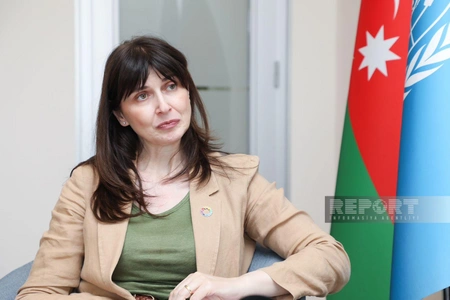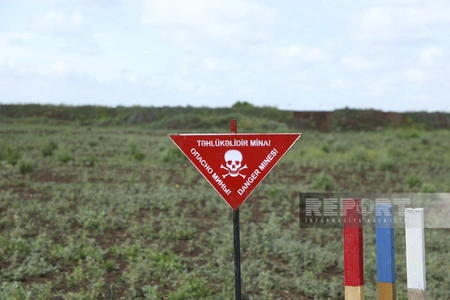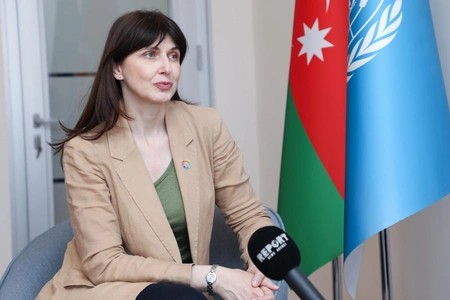UN resident coordinator: COP29 will play crucial role in advancing climate action on worldwide scale
- 29 May, 2024
- 10:38
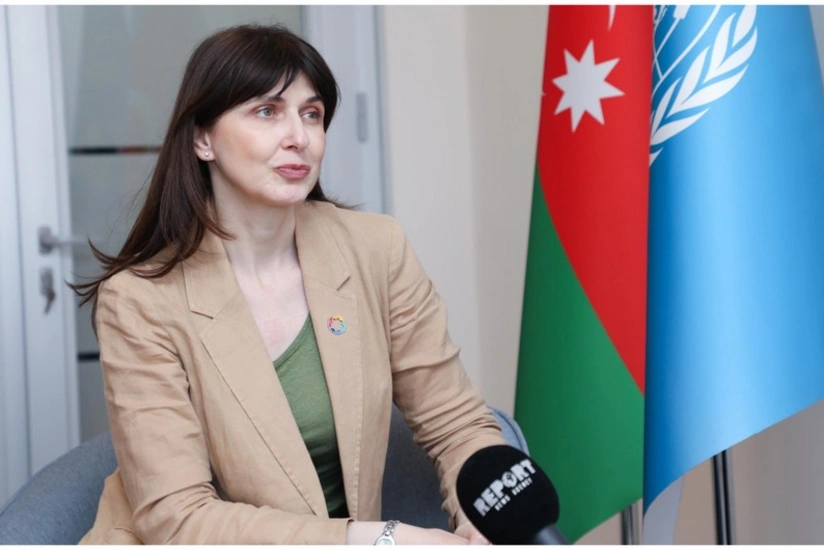
The fight against climate change is an urgent challenge facing the global community. The need to reduce greenhouse gas emissions, protect vulnerable ecosystems, and adapt to adverse climate change is becoming increasingly critical to ensuring a sustainable planet.
In this context, the United Nations Climate Conference (COP29), scheduled for November in Baku, represents an important opportunity for global alignment and cooperation. COP29 will serve as a platform to discuss and adopt strategies to reduce greenhouse gas emissions and strengthen adaptation measures to a changing climate.
In an interview with Report, UN Resident Coordinator in Azerbaijan Vladanka Andreeva spoke about expectations from COP29, cooperation with the Azerbaijani government for the successful holding of the conference, Azerbaijan's efforts in achieving the Sustainable Development Goals (SDGs), cooperation in the field of mine action, and other important topics.
- As we know, COP 29 will be held in Baku this year. What are your expectations from this conference?
COP 29, the upcoming climate conference, is poised to be a significant event for both the host country and the global community. This meeting will play a crucial role in advancing climate action on a worldwide scale. The COP 29 presidency has expressed a clear vision: they aim to make COP 29 an "enabling COP." Their goal is to build upon the consensus achieved in the Emirates and pave the way for COP 30.
COP is not merely an event; it is a continuous process. Each COP serves as a foundation for the next, contributing to the overarching goal of limiting global temperature rise to 1.5 degrees Celsius, aiding vulnerable communities in adapting to climate change, and achieving net-zero emissions by 2050. Given the severity of the climate crisis, the importance of each COP cannot be overstated. Failure is not an option, and global expectations for COP 29 are exceptionally high.
I would like to highlight three key priorities for COP 29:
- Climate Financing and Setting a New Collective Goal: Establishing a new, quantified collective climate financing goal is essential.
- Transparency and Accountability: Under the Paris Agreement, countries are committed to submitting their first biennial transparency reports by the end of December this year. Ensuring transparency and accountability in these reports is crucial.
- Building Political Momentum for Enhanced Nationally Determined Contributions (NDCs): It's vital to generate political momentum for the next iteration (version 3.0) of the NDCs.
Additionally, while global expectations for COP 29 are high, the UN team in Azerbaijan also sees this as an opportunity. Hosting COP 29 in Baku offers a chance to leverage the positive momentum and elevate Azerbaijan's climate action ambitions.
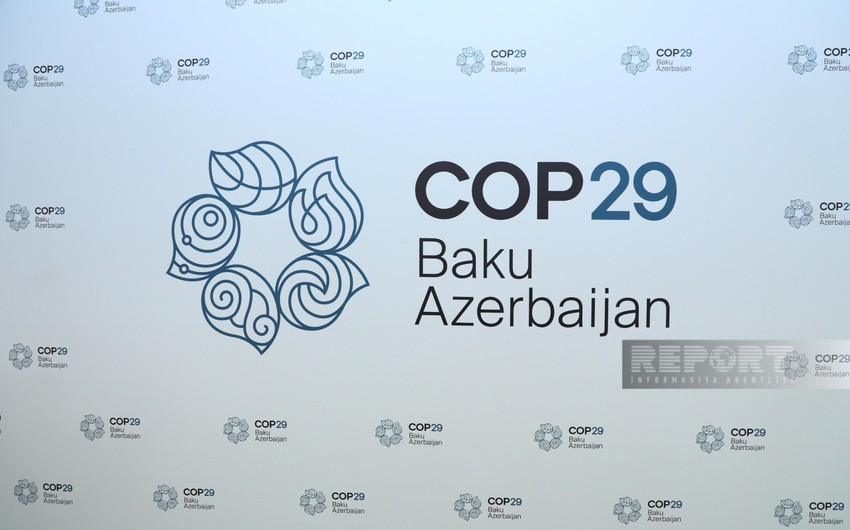
- Could you please specify how Azerbaijan and the UN will cooperate to make COP 29 a success?
We are working on three parallel tracks to ensure the success of COP 29. Firstly, my colleagues from the United Nations Framework Convention on Climate Change Secretariat (UNFCCC) are the custodians of the climate conference. The UNFCCC provides essential logistical and content support to the COP 29 presidency, ensuring a successful event.
Secondly, the COP 29 presidency has explicitly requested coordinated support from the United Nations. In response, we have activated a UN Global Task Force for COP 29, which I co-chair with Mr. Selwin Hart, the Special Advisor on Climate Action to the Secretary-General. This task force, comprising 25 UN entities, brings together the collective expertise within the UN ecosystem to support the COP 29 presidency's initiatives.
Finally, the UN Country Team in Azerbaijan, consisting of 18 agencies, has developed an engagement strategy for events leading up to and during COP 29. A flagship initiative of this strategy is the "29 Climate Conversations" series. In partnership with Amcham, ADA University, and Pasha Holding, we have organized five Climate Conversations so far to raise public awareness about the importance of COP 29 and climate action.
These coordinated efforts demonstrate our commitment to making COP 29 a pivotal event in the global fight against climate change.
- What strategies and measures do you consider the most effective for states to fight climate change, taking into account the current challenges and opportunities?
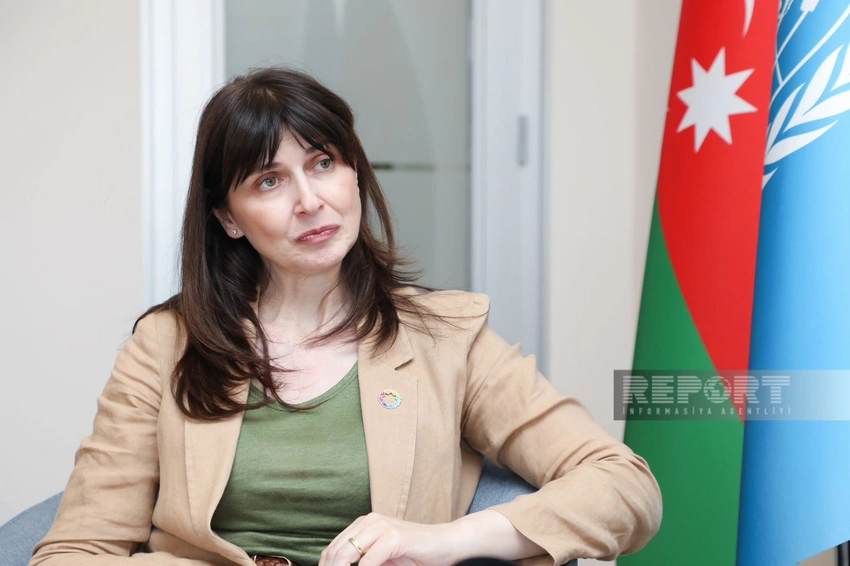
The first thing I would like to stress is urgency of action. The next few years will largely determine whether we can limit global temperature rise to 1.5 degrees. To stay within that limit, we must cut emissions 45 percent by 2030, compared with 2010 levels, and we need emissions to have peaked by 2025.
There are three areas of action that the countries would need to take, and these are: Nationally Determined Contributions (NDCs 3.0); phasing out fossil fuels; and climate finance.
NDCs 3.0 - The UAE Consensus recognized the need to peak global emissions by 2025, taking into account different national starting points, and the countries are encouraged to submit economy-wide NDCs 3.0 that are align with the 1.5-degree limit. The entire UN system – under the technical leadership of UNDP – is being mobilized to assist the countries to do so. New NDCs should cover all emissions and sectors. They should map a just transition to clean energy. And they must be backed-up by robust policies and regulations – from an effective carbon price, to ending fossil fuel subsidies. For developing countries, this is a chance to create national climate plans that double as national transition plans and national investment plans: to attract capital and investments; to chart a just transition to a net zero future; and to underpin sustainable development for generations to come. For the G20 countries, this is an opportunity to show true leadership on the global stage by accelerating a just, equitable fossil fuel phase-out.
Phasing out fossil fuels – The UAE Consensus also calls on Parties to transition away from fossil fuels and to triple renewables and double energy efficiency globally by 2030. Action is needed now to ensure that this transition is just for people and planet. This includes working to ensure the production and trade of minerals critical to the energy transitions are just, sustainable and provide maximum added value in the countries supplying the raw materials in the first place. Developing countries must not be only producers of raw materials; they must be much higher in the level of capacity to transform them.
Climate finance – Just transition also means urgent action to unlock the finance developing countries need to leapfrog fossil fuel dependence while bringing clean power to all. At a minimum, developed countries must clarify the delivery of the USD 100 billion, and explain how they will double adaptation funding to at least USD 40 billion a year by 2025. At COP29, all countries must agree on an ambitious new climate finance goal. This would also require exploring innovative sources of climate finance. Countries on the frontline of the climate crisis need to receive far greater support.
In addition to these three areas of action, I would like to highlight one additional important area of action: investment in human capital. Transition to an environmentally sustainable and low-carbon economy is contingent on there being available relevant skills in the countries. We need coordinated and coherent policy approaches for skills development to enable green transition, and in doing so, we need to adopt inclusive and participatory approaches. Targeted reskilling is needed for vulnerable and disadvantaged groups, who are particularly affected by the transition.

- How do you assess Azerbaijan's efforts to implement sustainable development goals?
I have been in Baku for three years now, and I can see how Azerbaijan has continuously demonstrated its commitment to accelerate progress towards the 2030 Agenda for Sustainable Development and the SDGs. Last year, the country was one of the 40 countries in the world that submitted their National Commitments to SDG Transformation at the 2023 SDG Summit. The high-level political commitment has translated into sound progress in a number of SDG indicators. Of the total 248 global SDG indicators, Azerbaijan has prioritized 119 SDG indicators. According to the SDG progress analysis by ESCAP for the period 2015-2023, Azerbaijan has shown progress on 61 of the SDG indicators. To further accelerate SDG progress, concerted efforts and investments in the targeted SDGs could trigger progress across all SDGs in Azerbaijan. This year, Azerbaijan will be presenting its 4th Voluntary National Review (VNR) to share Azerbaijan’s experience and lessons learned from SDG implementation. And as a part of the 'live-learning' between Azerbaijan and Lao PDR, both of whom are presenting their VNRs this year, the Lao PDR delegation visited Azerbaijan on a study tour. This is another excellent example of Azerbaijan’s leadership in the regional and international sustainable development platforms, to share Azerbaijan’s successes, challenges and lessons learned, to promote peer learning.
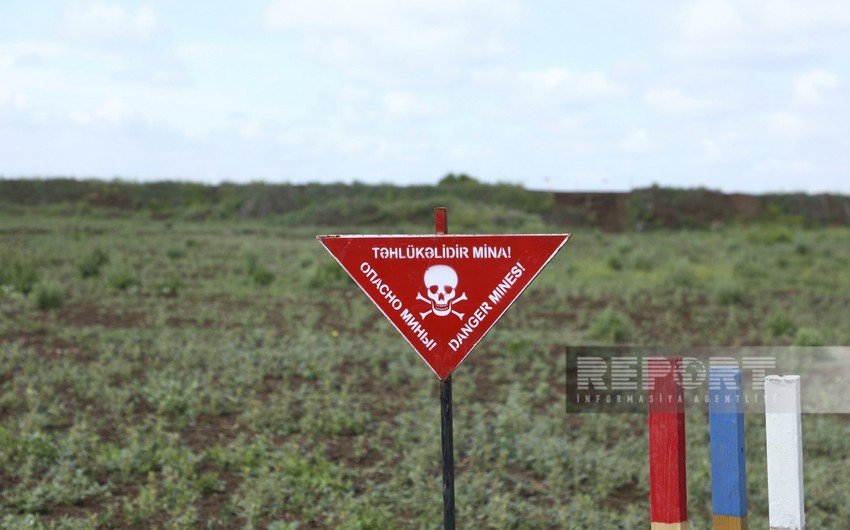
- Could you please tell us more about the strategic direction of bilateral cooperation between the UN and Azerbaijan for 2021 and 2025?
The strategic directions of the cooperation between Azerbaijan and the UN have transitioned over the past 30+ years, from assistance-based to partnership-based cooperation.
Under the current UN Azerbaijan Sustainable Development Cooperation Framework 2021-2025, which articulates the partnership between Azerbaijan and the UN to advance the SDGs, we have been working with the Government to: promote inclusive growth that reduces vulnerability and builds resilience; build stronger institutions for better public and social services; protect the environment and address climate change; and empower women and girls in all spheres of life.
A total of 18 UN Agencies, Funds and Programmes, 11 of whom physically in-country, have been implementing programmes in these priority areas, in support of the national development priorities
Between 2021 and 2023, UN in Azerbaijan has mobilized and allocated over USD 92 million for Cooperation Framework implementation.
As we are in the 4th year of implementation of the Cooperation Framework, this year, we are having an external evaluation to have an independent assessment on our performance: have we delivered the results that we set out to achieve under the Cooperation Framework; what went well and where can we do better; and – most importantly – what are some of the recommendations that we should consider as we develop the next Cooperation Framework in 2025, together with the Government and other stakeholders.
- In your opinion, how has cooperation with Azerbaijan in the field of demining progressed so far?
That was one of the key priorities that President Aliyev asked me to support the government with when I assumed my role as UN Resident Coordinator in July 2021. The UN Country Team Azerbaijan has been supporting the Government’s ambitious post-conflict recovery and reconstruction efforts in the areas of mine action, skills development and livelihood support to IDPs health, education and other social services, legal assistance, environmental recovery and energy efficiency.
Azerbaijan is one of the countries that is most polluted by land mines. Since 2020, with financial support from the European Union, the Government of the United Kingdom, internal UN resources and others, three UN agencies – UNDP, UNICEF and UNHCR – have been jointly supporting ANAMA’s mine action efforts, through institutional strengthening, provision of technical expertise, procurement support, and explosive ordnance risk education.
However, there remains much more to be done, and there is scope for increased partnership and international support for mine action in Azerbaijan. Jointly with ANAMA, UN has helped organized two international land mine conferences. The third one is scheduled for end of May, and will be organized in Zangilan and Baku .
These international conferences serve a dual purpose. On one hand, they raise awareness about the importance of supporting mine action, as a prerequisite for sustainable development and peace . On the other hand, they highlight the growing technical capabilities of ANAMA, positioning it as a center of excellence for other countries that are also facing mine action challenges. Additionally, these conferences provide a platform to seek ongoing international support for the critical task of making Karabakh mine-free.
- How does the UN assess Azerbaijan's efforts in their fight to protect and expand women's rights, and what additional steps could be recommended to achieve more progress in this area?
Under the UN Sustainable Development Cooperation Framework (2021-2025), Gender-Equitable Society that Empowers Women and Girls is one of the four priority areas of cooperation
In line with the national development priorities and Azerbaijan’s international commitments, we are providing policy advocacy support, to develop policies that counters discrimination and challenges stereotypes on gender roles; policies that are directed at improving women’s representation in the workforce, combating negative perceptions on women’s role in society, eliminating all forms of violence and harmful traditional practices against women and girls.
We have also facilitated strengthening of the national institutions’ capacities to better address the needs of women and girls, including through improved availability of data on different dimensions of gender equality. Our joint efforts to sensitize both the decision-makers and the local communities have led to expansion of the network of champions for gender equality.
Some of the results that the UN was able to support include:
- Strengthening the response to gender-based violence through referral pathways and legal and psychosocial support to survivors.
- Mainstreaming gender equality approaches into the National School Improvement Plan.
- Organization of awareness campaigns, focused on responsible fatherhood, egalitarian family, gender issues in religion and value of a girl child.
- Together with a coalition of partners, organization of a momentous 16 Days of Activism Against Gender-Based Violence campaign in 16 districts of Azerbaijan, reaching nearly 2,700 people.
- A technical review and recommendations on the Labour Code led to the reduction of prohibited professions for women from 674 to 204 by the Parliament.
Going forward, we should recall that as a part of the Socio-Economic Development Strategy of the Republic of Azerbaijan (2022-2026) and the strategic priority on “Dynamic, inclusive and equitable society with competitive human capital and modern innovations space,” Azerbaijan has committed to improve women’s access to economic opportunities and to actively promote women’s participation in high-paying industries. Azerbaijan has also committed to increase the ratio of women’s monthly average wage to that of their male counterparts, from 64.8% in 2021 to 80%.
As the UN, we look forward to continuing to support the Government to fulfil its national commitments and to support actions towards achieving gender equality and women’s empowerment in Azerbaijan, in partnership with the Government, civil society and development partners.
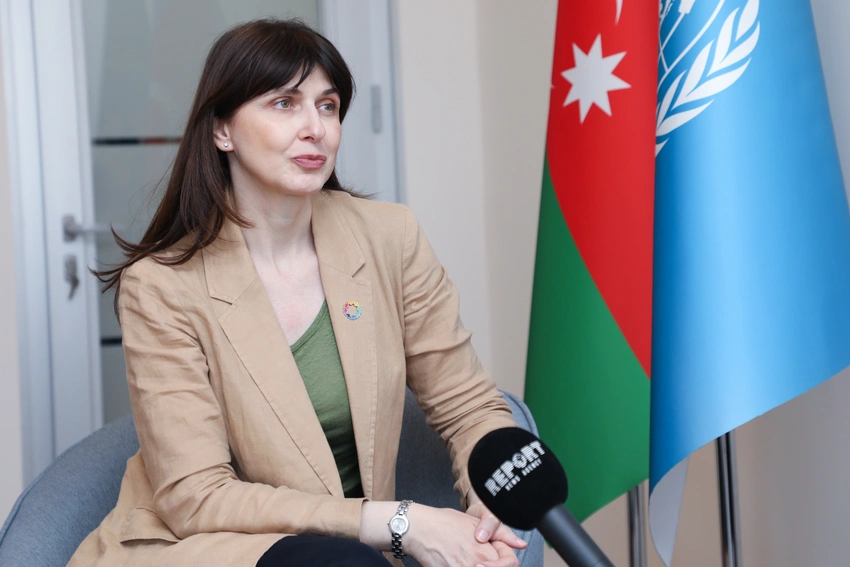
- And the last question. What further steps are planned to deepen the partnership between Azerbaijan and the UN?
All good partnerships are evolving, and our partnership with the government of Azerbaijan is no exception. When we first opened the UN presence in 1992, the support that we were offering was mostly of a humanitarian nature. There were a huge number of internally displaced people.
And obviously, as the country was developing and was climbing the ladder of economic progress, the nature of our partnership and the work that we do jointly have also changed. What has not changed is our commitment as a UN family to continue to support the very ambitious agenda of the government to reach sustainable development goals by 2030.
Next year, we are going to be developing, our new cooperation framework. We are going to discuss now, in this changing environment, what are the priorities for the UN to continue to support Azerbaijan on the road to achieving sustainable, green, and inclusive development. I have no doubt that climate action is going to continue to be one of the priorities. I also foresee a strong element of inclusion and participation – including of young people, women, persons with disabilities, etc. – in the new Cooperation Framework, again taking the cue from the good practices and lessons we will learn from Azerbaijan hosting of COP29.

